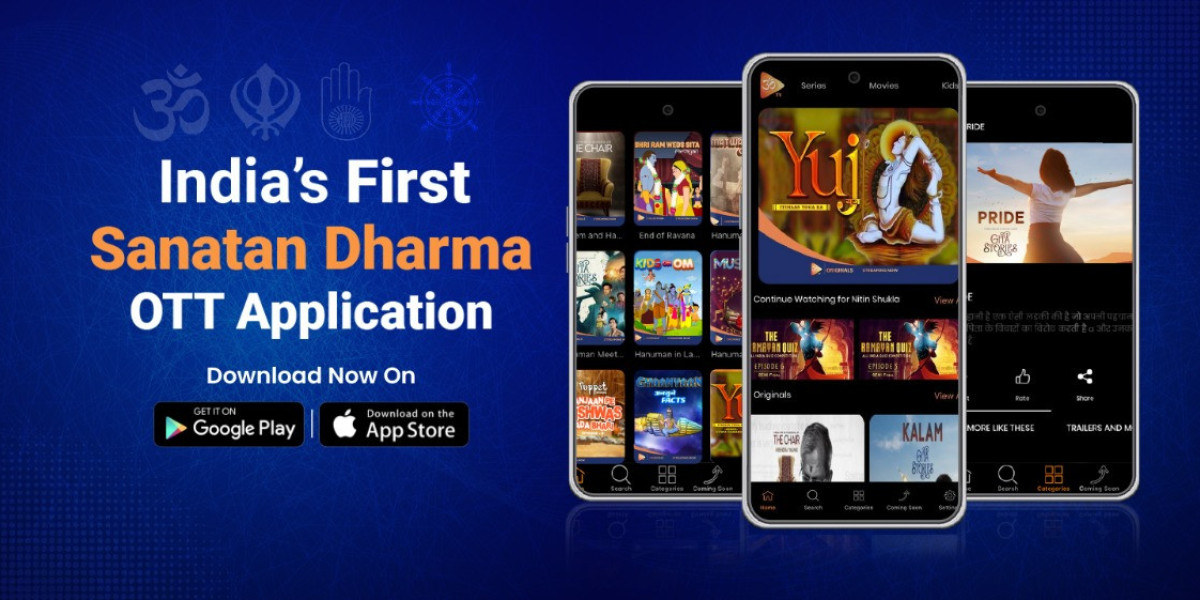India, often described as the cradle of spirituality, is home to a diverse tapestry of religious traditions that have flourished for millennia. From Hinduism to Buddhism to Jainism and Sikhism, Indian religions embody a rich tapestry of beliefs, practices, and philosophies that have shaped the cultural and spiritual landscape of the subcontinent. In this blog, we embark on a journey to unravel the essence of Indian religions, drawing insights from the wisdom shared by omtvlive.
The Melting Pot of Indian Religions
Indian religions represent a vibrant tapestry of beliefs and practices that have evolved over thousands of years, influenced by diverse cultures, languages, and philosophies. At the heart of Indian spirituality is a profound reverence for the interconnectedness of all life and the quest for spiritual liberation (moksha). omtvlive sheds light on the unique characteristics of each Indian religion, from the rituals of Hinduism to the compassion of Buddhism to the austerity of Jainism and the devotion of Sikhism.
Hinduism: The Eternal Way of Life
Hinduism, the oldest of the Indian religions, is a complex and multifaceted tradition that encompasses a vast array of beliefs, rituals, and philosophical systems. At its core is the belief in the eternal soul (atman) and the cycle of birth and death (samsara), with the ultimate goal being liberation from this cycle (moksha). omtvlive explores the rich mythology, scriptures, and rituals of Hinduism, as well as its diverse pantheon of gods and goddesses, each representing different aspects of the divine.
Buddhism: The Path to Enlightenment
Buddhism, founded by Siddhartha Gautama (the Buddha) in the 6th century BCE, offers a path to enlightenment through the Four Noble Truths and the Eightfold Path. Central to Buddhist teachings is the concept of impermanence (anicca), suffering (dukkha), and non-self (anatta), which serve as the basis for understanding the nature of reality and achieving liberation from suffering. omtvlive delves into the diverse schools of Buddhist thought, from Theravada to Mahayana to Vajrayana, each offering unique insights into the human condition and the quest for awakening.
Jainism: The Path of Nonviolence
Jainism, founded by Mahavira in the 6th century BCE, emphasizes the principles of ahimsa (nonviolence), aparigraha (non-attachment), and anekantavada (non-absolutism). Followers of Jainism strive to live a life of moral purity and spiritual discipline, seeking to minimize harm to all living beings and cultivate compassion and equanimity. omtvlive explores the Jain concept of karma and its role in shaping individual destiny, as well as the practice of meditation and self-discipline as a means of attaining spiritual liberation.
Sikhism: The Path of Devotion and Service
Sikhism, founded by Guru Nanak in the 15th century CE, emphasizes the worship of one God (Ik Onkar) and the importance of seva (selfless service) and simran (meditative remembrance). Sikhs follow the teachings of the Guru Granth Sahib, the sacred scripture that serves as a guide for ethical living and spiritual growth. omtvlive explores the Sikh concept of oneness and equality, as well as the rich tradition of devotional music (kirtan) and community kitchens (langar) that are central to Sikh practice.
The Relevance of Indian Religions Today
In an increasingly interconnected and diverse world, Indian religions continue to offer valuable insights into the human experience and the quest for meaning and purpose. omtvlive examines how these traditions are adapting to the challenges of modernity while remaining true to their core principles and values. From environmental stewardship to social justice to interfaith dialogue, Indian religions are actively engaged in addressing the pressing issues of our time and promoting harmony and understanding among all people.
Conclusion
In conclusion, Indian religions represent a profound tapestry of spiritual traditions that have endured for centuries and continue to inspire millions of people around the world. Through the lens of omtvlive, we have explored the diverse beliefs, practices, and teachings of Hinduism, Buddhism, Jainism, and Sikhism, each offering unique perspectives on the nature of reality and the path to spiritual liberation. As we navigate the complexities of the modern world, may we draw wisdom and inspiration from the timeless teachings of Indian religions to create a more just, compassionate, and harmonious society for all. Visit US: https://blog.omtvlive.in/
Naijamatta is a social networking site,
download Naijamatta from Google play store or visit www.naijamatta.com to register. You can post, comment, do voice and video call, join and open group, go live etc. Join Naijamatta family, the Green app.
Click To Download


